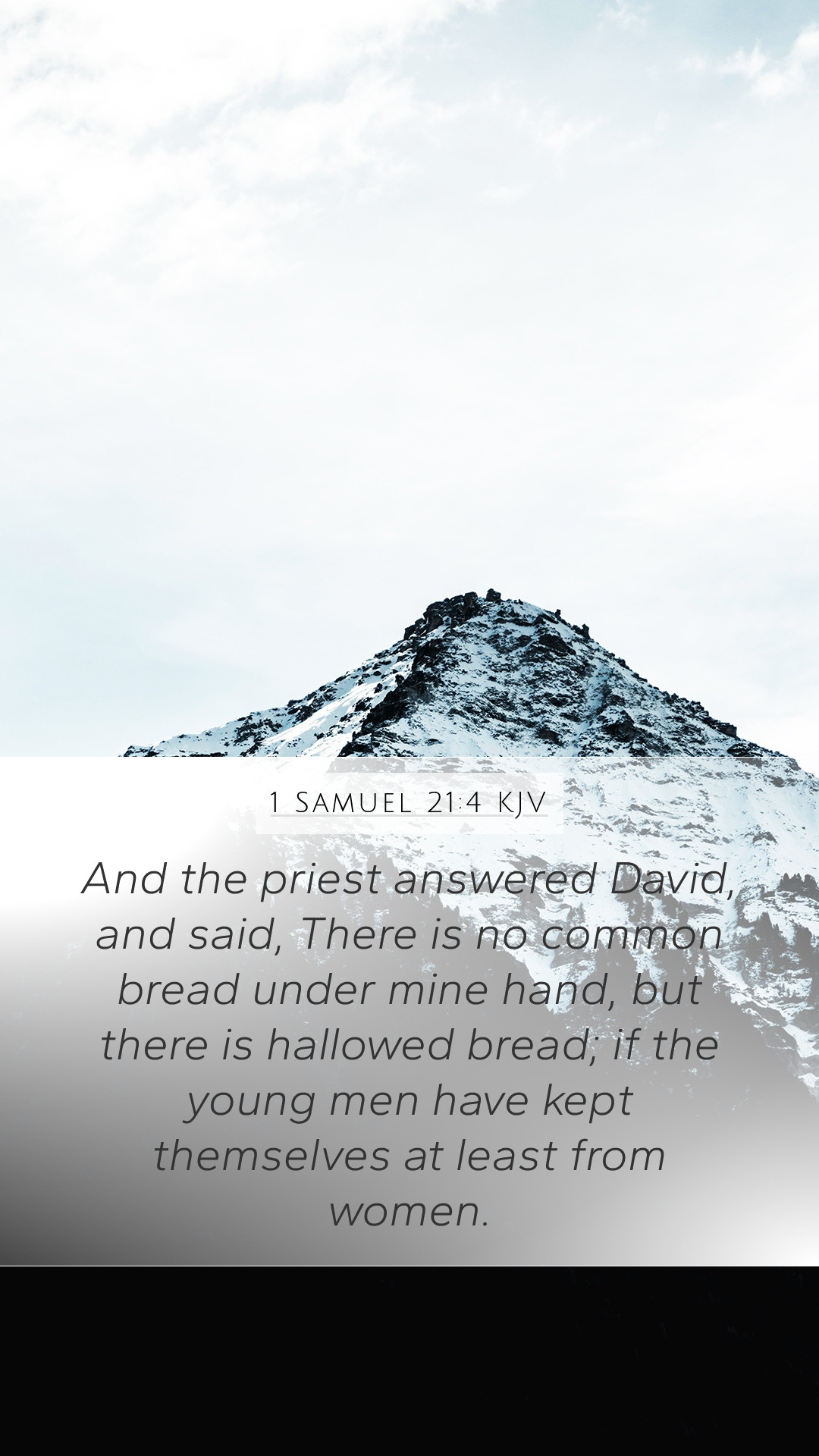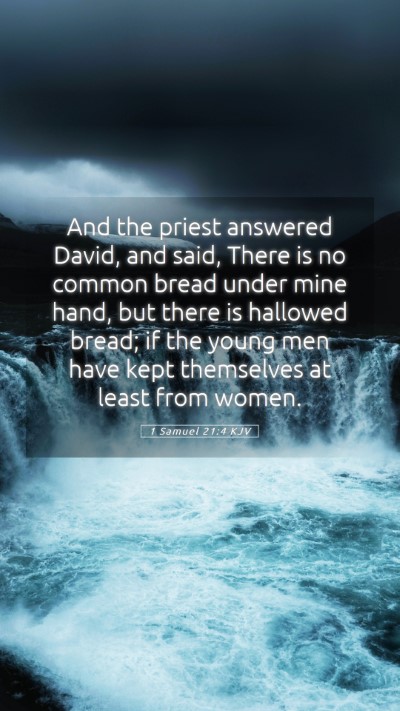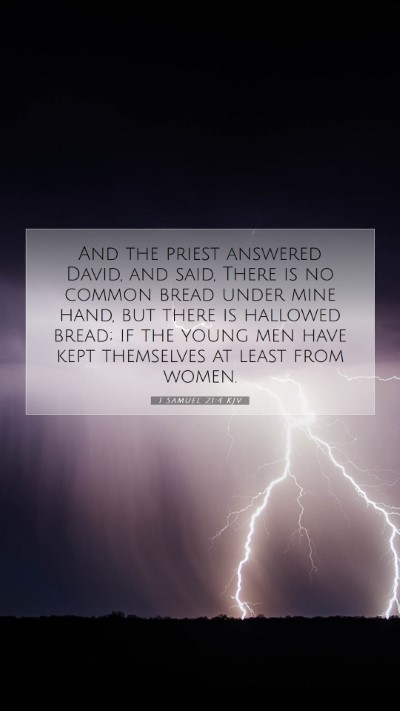Bible Verse Meaning and Interpretation: 1 Samuel 21:4
1 Samuel 21:4: "And the priest answered David, and said, There is no common bread under mine hand, but there is hallowed bread; if the young men have kept themselves at least from women."
This verse occurs during a critical moment in the life of David, as he is fleeing from King Saul and arrives at Nob, where the priest Ahimelech serves. The significance of this interaction and the implications surrounding it provide rich material for Bible verse understanding and biblical exegesis.
Contextual Overview
The first thing to consider when analyzing this passage is the context in which it occurs. David is in desperate need of sustenance, which places him at the mercy of the priest. This predicament highlights a theme in Scripture: the necessity of human needs versus strict adherence to ceremonial law.
Commentary Insights
-
Matthew Henry's Commentary
Matthew Henry emphasizes the dire circumstances David faces, noting that his request reveals both desperation and faith. The focus on “hallowed bread” signifies the sacredness of the bread that was to be consumed only by the priests, which raises questions about the nature of the law and its interpretation. Henry suggests that the priest's willingness to give David the hallowed bread demonstrates the spirit of the law versus the letter of the law.
-
Albert Barnes' Commentary
Albert Barnes discusses the "hallowed bread" in more depth, explaining that it was consecrated for the priests and held great importance in the tabernacle service. He points out that the priest allowed David to eat this bread because of his extraordinary circumstances. This reflects a core principle of mercy within the framework of biblical law, asserting that human need has precedence over ritual purity.
-
Adam Clarke's Commentary
Adam Clarke focuses on the requirements set forth by the priest concerning purity. He details the moral conditions that David and his companions must meet in order to receive the consecrated bread. Clarke's insight emphasizes the balance in the law between ritual observance and the compassionate provision for human needs, suggesting that God desires mercy more than sacrifice.
Theological Implications
This verse illustrates a critical theological point about the nature of the law in the Old Testament. The interaction between David and the priest highlights how the law is to be interpreted through the lens of human need and divine mercy. It poses an essential question of how scripture analysis should prioritize life and necessities over rigid adherence to rules.
Application in Daily Life
As believers engage with this text, there are profound implications for how we approach the law and each other in our communities. How can we embody mercy and compassion, particularly in scenarios where rules might seem unyielding? 1 Samuel 21:4 calls us to reflect on the nature of our own judgments and the importance of grace in our lives.
Cross References
- Leviticus 24:5-9: Discusses the preparation of the showbread, establishing its sacredness.
- Matthew 12:1-8: Jesus refers to David’s actions regarding the showbread to argue for mercy over sacrifice.
- Mark 2:23-28: Another New Testament account where the Lord emphasizes the purpose of the Sabbath through human necessity.
Conclusion
1 Samuel 21:4 enriches our Bible study insights by showcasing the interplay between divine law and the necessities of life. It encourages believers to seek a deeper understanding of Scripture and to apply its lessons in everyday circumstances. By examining the commentary from respected theologians, we can appreciate the enduring relevance of this passage in our own faith journeys.


